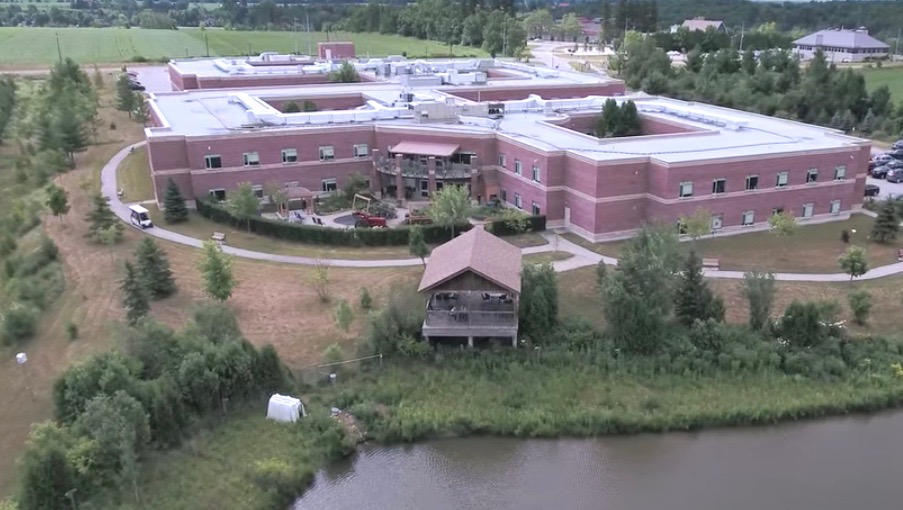ABOYNE – The Wellington Terrace Long-Term Care Home was recently visited by inspectors from the Ministry of Long Term Care (MLTC) for a proactive inspection unlike anything Terrace administrators have seen before.
Proactive inspections aren’t anything new; at least one yearly inspection has been required to take place at every home across the province for several years.
This year, however, inspectors completed the first in-depth inspection at the home since the province said it was revamping such inspections late last year, placing more emphasis on conversations with residents about their care needs.
During a June 8 verbal report to members of Wellington County’s information, heritage and seniors’ committee, Wellington Terrace administrator Suzanne Dronick said the inspection was “quite intensive.”
She, and assistant administrator Peg Muhlbauer, had not experienced “anything like the deep-dive that they [were] doing,” Dronick told the committee.
Inspectors examined education provided to staff; reviewed policies; reviewed the home’s infection, prevention and control measures; focused on air quality and the building’s HVAC system; and observed management of medications.
According to a publicly-available June 17 copy of an MLTC report from the inspection, three inspectors attended Wellington Terrace on nine days: May 30-31, June 1-3 and 6-9.
On those days, according to the report, inspectors interviewed and observed staff, examined policies, and reviewed records, resulting in the discovery of four problems.
Two non-compliances, remedied by the home to the satisfaction of inspectors, were discovered during the inspection.
A person’s care plan was not revised related to an assistive device needed, and a locked cupboard containing controlled drugs set to be destroyed was not bolted to the ground.
Written notices were also issued by inspectors for inconsistent air temperature monitoring, and for not following medication administration rules.
Under the Fixing Long Term Care Act, air temps need to be maintained at a minimum of 22 degrees Celsius and measured three times every day at different locations within the facility.
Records reviewed by inspectors between May 15 and June 7 showed temperatures were not measured on nine daytime occasions.
A remark in the MLTC report states residents faced “minimal risk” from air temperatures going unmonitored.
The home has previously struggled to maintain compliance with air temperature checks, revealed during an inspection last year.
Administrators previously told the same committee, on Sept. 8, that protocols amended by the province in May 2021 were skimmed over, leading to an “oversight.”
It is not clear from the recent report what led to temperatures not being consistently measured between May and June this year.
Another written notification was issued related to medication administration.
“A registered staff did not supervise or remain with the resident after providing them with a medication,” states the report, adding three additional residents were seated at the same table.
The lack of supervision “placed the resident and other residents at moderate risk of harm,” the report concludes.
It’s unclear from emailed responses by ministry spokesperson Mark Nesbitt how risk is evaluated; the spokesperson didn’t answer a question from the Advertiser asking as much.
Nesbitt also did not answer a question asking if the number of inspections at area long-term care homes would increase with the province’s commitment to fix long-term care.
In response to a question about how the province will ensure compliance with legislation, and that problems are in fact rectified, Nesbitt stated: “The results from proactive inspections will help the ministry determine where the sector can benefit from additional resources, including guidance material and best practices.”
Provincial inspectors “complimented the care and services” at the home, Muhlbauer said in a prepared statement emailed to the Advertiser.
“We also received feedback that staff showed great professionalism and positivity throughout the inspection process and, along with residents, were helpful in providing the information requested,” Muhlbauer added.
In her email, Muhlbauer characterized the four problems identified by ministry inspectors as “requiring improvement” and noted each had since been resolved.
The home has previously been the subject of 26 other provincial inspections between 2010 and 2021.
Seven of those inspections occurred last year and included responses to two complaints, and three critical incidents, one being the death of a resident following a fall.




